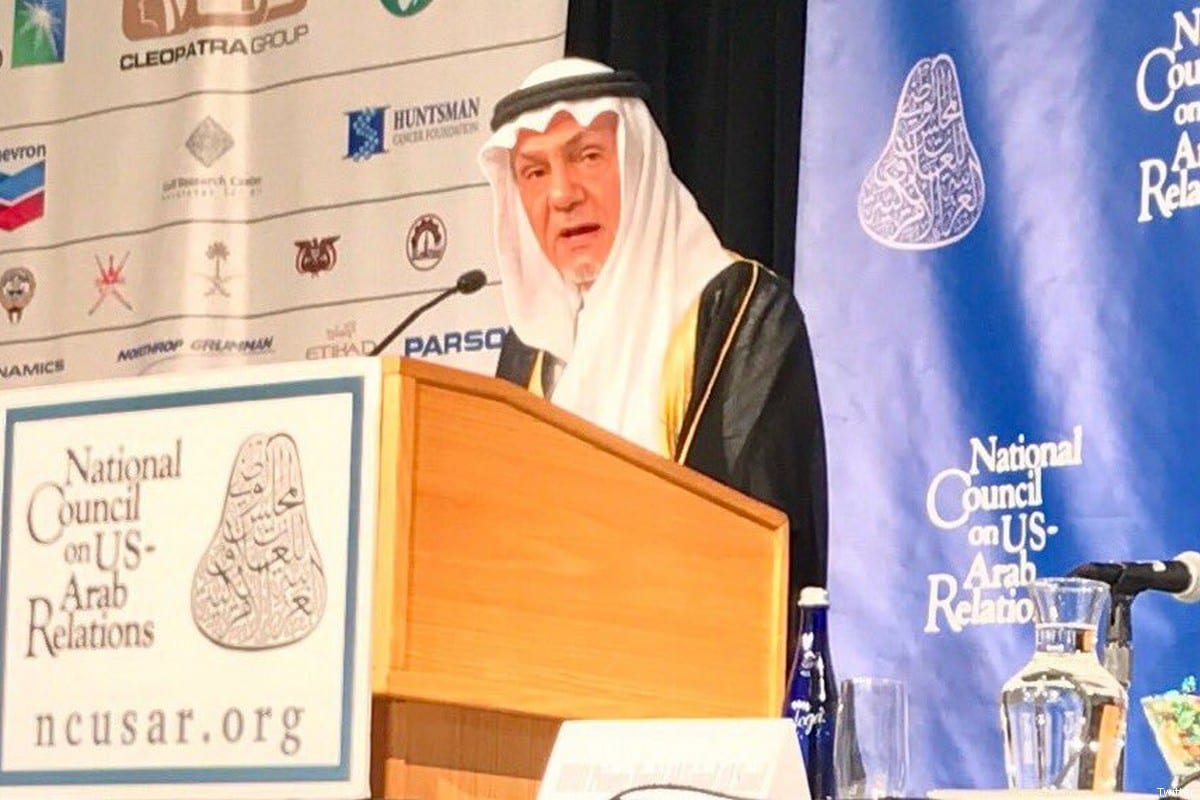December 7, 2020

Former Saudi ambassador to the United States, Prince Turki Al-Faisal on 10 December 2017 [Twitter]
December 7, 2020 at 3:30 pm
A Saudi prince and former senior government official Turki Al-Faisal called out Israel for building an "apartheid wall" and denying equal rights to its non-Jewish citizens, the Times of Israel reports.
Speaking at the Bahrain summit yesterday, in the presence of Israeli Foreign Minister Gabi Ashkenazi, Prince Turki launched a blistering attack against Israel, describing the self-proclaimed Jewish state as a belligerent and apartheid-practicing occupier.
"Israeli governments have arrested thousands of the inhabitants of the lands they are colonising and incarcerated them in concentration camps under the flimsiest of security accusations — young and old, women and men who are rotting there without recourse or justice," said Prince Turki.
He also stressed the importance of resolving the Palestinian-Israeli conflict with a two-state solution.
"They're demolishing homes as they wish, and they assassinate whomever they want to. And yet, the Israeli Knesset passed a law that defines the citizenship of Israel as exclusively Jewish, denying the non-Jewish inhabitants of Israel equal rights under the law. What kind of democracy is that?" he asked.
Ashkenazi, who spoke immediately after Prince Turki, said: "I would like to express my regret on the comments of the Saudi representative. I don't believe that they reflect the spirit and the changes taking place in the Middle East."
Last Friday, Prince Faisal Bin Farhan Al Saud said Saudi Arabia would only normalise ties with Israel within a plan that would deliver a sovereign state to Palestinians, quashing speculation that the kingdom may soon become the latest Arab country to establish full diplomatic relations with the occupation state.
The UAE, Bahrain, Jordan and Egypt have now all signed peace deals with Israel, while Sudan has said it is willing to normalise relations with the occupation but at only if certain conditions are met.
No comments:
Post a Comment